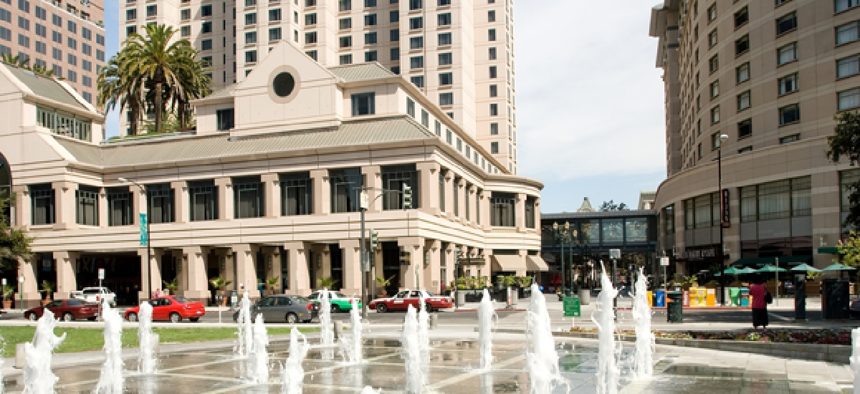San José partners with Facebook for high-speed outdoor Wi-Fi


Connecting state and local government leaders
San José, Calif., will be working with Facebook’s Connectivity Lab to pilot its Terragraph system, a 60-gigahertz wireless system for high-density areas.
Providing free high-speed wireless access is key to moving cities into the fast lane, but partnering with an Internet giant that will build out a new gigabit-speed communications technology downtown could put one city at the head of the pack.
San José, Calif., will be working with Facebook’s Connectivity Lab to pilot its Terragraph system, a 60-gigahertz wireless system for high-density areas. With multiple distribution nodes connected to high-speed fiber, Terragraph’s wireless system uses radios designed for consumer electronics that are based on the Wi-Gig standard. Deploying these inexpensive nodes at 200-250-meter intervals adds more connectivity in already connected areas, the company said.
On the back end, Terragraph will leverage the technology Facebook uses to manage its data center infrastructure, including IPv6-only nodes, a cloud compute controller like those used for software-defined-networks and a new modular routing protocol for fast route convergence and failure detection.
San José will grant Facebook access to the streetlights and infrastructure needed to set up the network, and the city’s staff will be working with the company to stand up and operate it, according to David Low, communications director for the San José mayor’s office.
The city and Facebook plan to deploy the research trial of the network later this year and are discussing the idea of also using the technology in underserved San José neighborhoods and transit corridors.

San José’s commitment to being a demonstration city in terms of showcasing and testing new technologies is in part why Facebook chose the area for its pilot, the city said, along with the free Wi-Fi network already in place downtown.
This partnership also supports the city’s recently approved Smart City Vision, which encourages adopting new technologies and using big data analytics and digital tools to enhance city services with the goal of becoming the country’s most innovative city by 2020.
NEXT STORY: Soldier avatars to drive down testing costs




